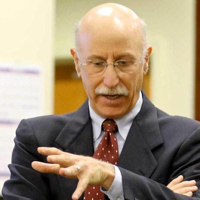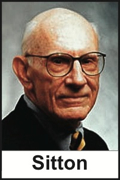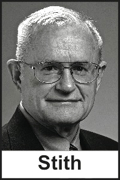Rascals case in brief
In the beginning, in 1989, more than 90 children at the Little Rascals Day Care Center in Edenton, North Carolina, accused a total of 20 adults with 429 instances of sexual abuse over a three-year period. It may have all begun with one parent’s complaint about punishment given her child.
Among the alleged perpetrators: the sheriff and mayor. But prosecutors would charge only Robin Byrum, Darlene Harris, Elizabeth “Betsy” Kelly, Robert “Bob” Kelly, Willard Scott Privott, Shelley Stone and Dawn Wilson – the Edenton 7.
Along with sodomy and beatings, allegations included a baby killed with a handgun, a child being hung upside down from a tree and being set on fire and countless other fantastic incidents involving spaceships, hot air balloons, pirate ships and trained sharks.
By the time prosecutors dropped the last charges in 1997, Little Rascals had become North Carolina’s longest and most costly criminal trial. Prosecutors kept defendants jailed in hopes at least one would turn against their supposed co-conspirators. Remarkably, none did. Another shameful record: Five defendants had to wait longer to face their accusers in court than anyone else in North Carolina history.
Between 1991 and 1997, Ofra Bikel produced three extraordinary episodes on the Little Rascals case for the PBS series “Frontline.” Although “Innocence Lost” did not deter prosecutors, it exposed their tactics and fostered nationwide skepticism and dismay.
With each passing year, the absurdity of the Little Rascals charges has become more obvious. But no admission of error has ever come from prosecutors, police, interviewers or parents. This site is devoted to the issues raised by this case.
On Facebook
Click for earlier Facebook posts archived on this site
Click to go to
Today’s random selection from the Little Rascals Day Care archives….
Click for earlier Facebook posts archived on this site
Click to go to
Today’s random selection from the Little Rascals Day Care archives….
In Raleigh, even justice delayed is hard to come by
Dec. 3, 2012
Exoneration is in the air!
From Texas to New York – and of course here in North Carolina – more and more prosecutorial abuses are being dug up, dusted off and exposed to long-delayed doses of daylight.
If you’re keeping score, the National Registry of Exoneration has just hit quadruple digits – that’s Bob Kelly, Dawn Wilson and 998 other wrongfully convicted defendants.
So what are the prospects that the State of North Carolina will at last release a Duke-lacrosse-style statement of innocence for the Edenton Seven?
Since last summer, when my petition was kissed off by Mark Davis, general counsel to Gov. Bev Perdue, and I was advised to try Attorney General Roy Cooper, not a peep has been heard in response. It would take a greater optimist than me to believe this silence suggests ongoing thoughtful contemplation.
As the governor prepares to leave office, a valued ally of littlerascalsdaycarecase.org used his access to lobby on behalf of the defendants. But pardon applications have been torrential, he was told, and the Edenton Seven case isn’t among those Perdue is considering.
That still leaves the attorney general – or does it, Mr. Cooper?
APSAC official acknowledges ‘granddaddy of our “oops!”’

heraldnet.com
Paul J. Stern
Oct. 9, 2016
Paul J. Stern, recently retired prosecutor in Snohomish County, Wash., has long served the American Professional Society on the Abuse of Children as a board member and as an instructor on forensic interviewing.
At the least his June presentation to a large audience of APSAC conventioneers promised to be provocative: “What Practices Are We Engaging in Now That 15 Years From Now We’re Going to Look Back on and Think ‘What in the World Were We Thinking?’ ”
But the title paled in comparison with what Stern went on to say about the rap sheet of this ostensibly professional organization – its serial gullibility about “satanic ritual abuse,” “multiple personality disorder” and various other “misguided ideas.”
Click below to watch a video of Paul J. Stern’s entire talk.
He rambles, and the video suffers from not showing his accompanying PowerPoint. But the case he makes is powerful, unmistakable and surely discomfiting to audience members such as President Emeritus for Life Jon Conte and Board Member at Large Kathleen Coulborn Faller.
“I may irritate a few of you from time to time,” he noted as he began.
Some excerpts, edited for clarity:
- “I want to start by going back to the ’60s, the ’80s, the things we cared about then…. Some of the things we’ve grown up from in this field…. What were we thinking back then?… Oy! (clutches head, steps away from lectern)….What the hell were we thinking?….”
- “Let’s get the granddaddy of our ‘Oops!’ out of the way: ‘satanic ritual abuse.’ Individuals and agencies that weren’t skeptical failed to recognize that all of the iceberg that existed was the tip….And that melted pretty quickly…”
- “This matters [because] prosecutors sentenced people to prison based on good, scientific evidence that turned out not to be accurate.”
- “Why does all this happen? Child abuse is both an advocacy field and a political field. We’ve got to energize the base, energize the policymakers, get their attention…. Easy answers manage anxiety, and they get attention. ‘Kids never lie!’ ‘Believe the children!’ Great slogans, great bumper stickers, but it’s a little more complicated than that….”
Prosecutor Stern continued with a call for APSAC to focus on “evidence-based decision-making,” but I remained stunned by his acknowledgement of decades of APSAC’s cocky, costly wrongheadedness. Yes, innocent defendants such as Bob Kelly did indeed go to prison based on unfounded theories and corrupt interview practices.
Thank you, Mr. Stern, for your candor. Will this moment turn out to be an aberration – or is APSAC finally ready to make amends to the real victims of its “satanic ritual abuse” mythology?
![]()
Could N&O have thwarted ‘prosecutor gone wild’?
 March 18, 2013
March 18, 2013
“When I look back, I think my greatest mistake (was) my failure as editor of the News & Observer to make sure we had a top-notch investigative reporter on the Little Rascals case in Edenton.
“Our regional person was adequate as a regional correspondent, a full-time staffer, but he was not the person to see what was wrong with this case and to do the necessary digging to root it out.
“That prosecutor had gone wild, eaten up by ambition, I suppose, to hang these people, these people who operated the Little Rascals Day Care Center, no matter how.
“…All the kids talked about being borne through the air this way and that way and flying all over, and it was crazy stuff.
 “As it turned out, (the Edenton Seven were eventually released), but it wrecked their lives forever. And I still feel sorry about that, still feel sorry about it.
“As it turned out, (the Edenton Seven were eventually released), but it wrecked their lives forever. And I still feel sorry about that, still feel sorry about it.
“I think had we sent someone like Pat Stith down there, that would have been it.
“But see, at that time, Edenton already was a pretty far reach for the News & Observer…. (Our) pulling out of eastern North Carolina (to cut expenses) might have affected my thinking (about) whether we were really responsible for doing something about that miscarriage of justice.”
– From an interview with Claude Sitton, editor of the Raleigh News & Observer from 1968 to 1990 (Southern Oral History Program, Southern Historical Collection, UNC Chapel Hill, July 12, 2007)
A dispatch from the ‘comfort zone’ of rationality
 Aug. 10, 2014
Aug. 10, 2014
A final (perhaps) thought on Professor Sylvia Gillotte, after rereading this passage from our exchange of emails about her belief in “satanic ritual abuse”:
“The thing is, Mr. Powell, you can’t do this journey without a willingness to look into the darker side of humanity. You must be willing to challenge every previously held notion that you may have about the world and how it operates. You must push past your comfort zone and look beyond the veneer and the facade to what lies beneath the surface and within the bowels of the human psyche. You must be courageous enough to swim against the tide long enough to reach still water, where you can actually study dissociative trauma and even mind control in conjunction with ritual trauma allegations. Only then will you begin to see these allegations in their true light….”
Why do I continue to resist Professor Gillotte’s call to “challenge every previously held notion… about the world and how it operates”? Is it passivity? Timidity? Lack of imagination? Or is it simply a stubborn bias for fact over faith?











0 CommentsComment on Facebook